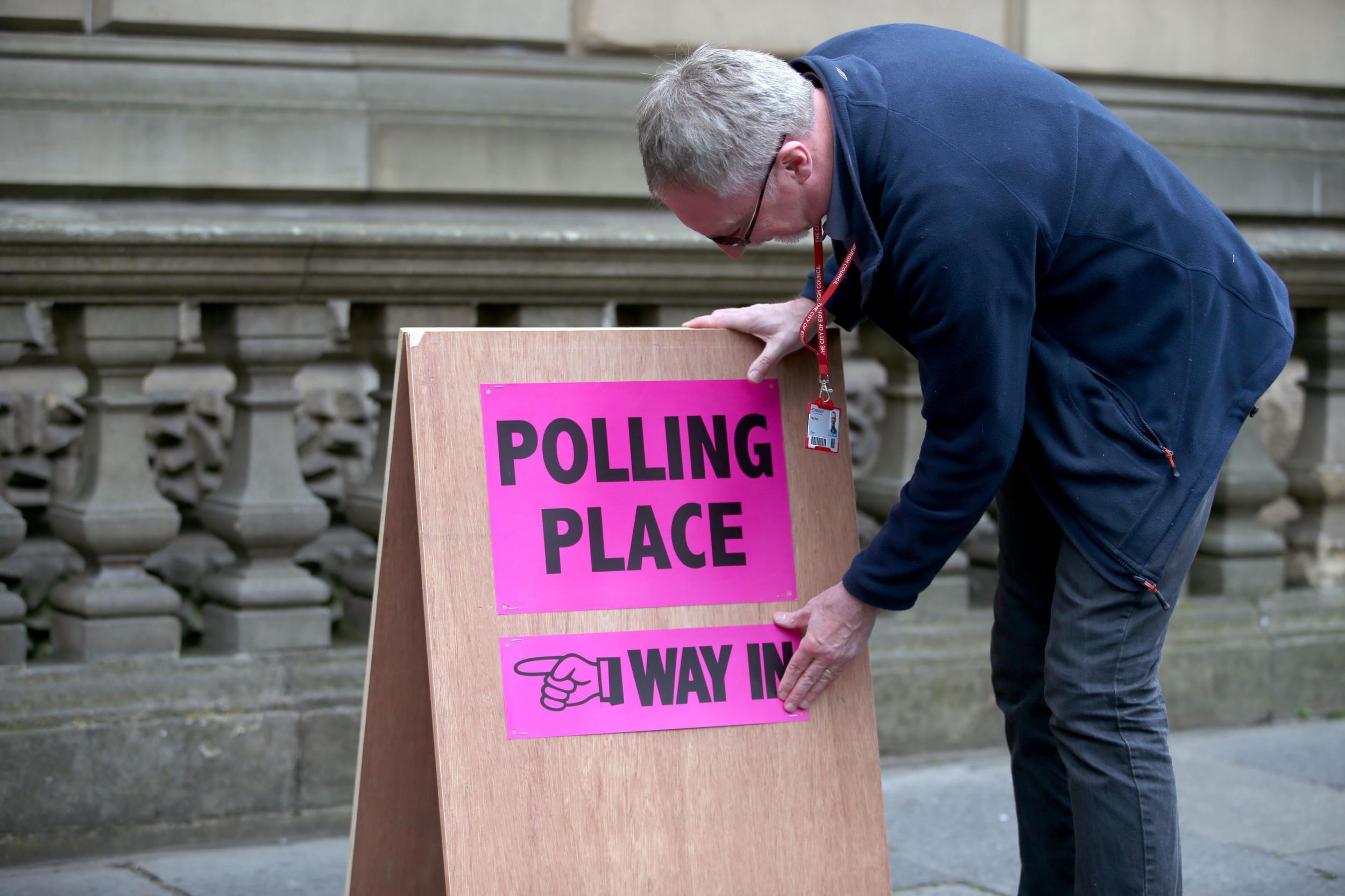The only way to avoid an 'Extreme Brexit' is to get young voters registered – whatever their political views
Many seats have become fragile because of the combination of the Ukip-Conservative vote, but increased turnout in the younger age bracket could limit a Tory landslide


Instant reactions to last week's local elections focused in on the headline numbers, suggesting a Tory landslide in next month’s general election. They forecast the worst ever election result for Labour, an 11-point lead for the Tories in the BBC Projected National Vote Share (PNVS) and ever stronger support for an "Extreme Brexit", resulting from the mass migration of Ukip voters to the the Conservatives.
Yet two very different messages could be drawn, just as validly, from the same set of results when read in conjunction with the latest opinion polls.
The first is that the Conservative Party’s effective takeover of Ukip has not really increased support for the Government’s plans for Brexit that verges on Extreme, but merely unified this support in a way that happens to be extremely advantageous in our electoral system. Based on the local election results, the PNVS projects combined votes for Tories plus Ukip of 43 per cent, seven points below these two parties’ combined votes of 50 per cent in the 2015 general election. Meanwhile the projected votes for Labour plus the Liberal Democrats are 45 per cent, compared with the 38 per cent achieved between them in 2015.
Why, then, the universal expectations of a Tory landslide? Because Labour’s vote has slumped while the Lib Dem gains in the local elections were spread thinly across the country, implying that Theresa May will gain dozens of extra seats with the newfound support of Ukip voters, even if total support for the two Brexit parties turns out to be lower than it was two years ago.
The second conclusion, which emerges from weekend opinion polls based on fieldwork just before the local election, is that the prospects for the general election and for the Government’s version of extreme Brexit could be challenged much more effectively if young people turned out to vote with the same enthusiasm as people over 55. Increased turnout in the younger age bracket could limit a Tory landslide. Very many seats, especially those held by Labour, have become fragile because of this combination of Ukip-Conservative voters.
A wide generation gap has opened up between the political parties, as revealed by detailed analysis of the demographic data contained in weekend opinion polls published by Opinium in the Observer and YouGov in thje Sunday Times.
While the Opinium/Observer survey showed the Tories 16 points ahead, with 46 per cent over Labour’s 30 per cent, this Tory majority was due entirely to voters older than 55. These older voters support Tories over Labour by a huge margin (60 per cent to 19 per cent, according to Opinium) while the under-25 age group shows support of 42 per cent for Labour against just 33 per cent for the Tories according to Opinium, and an even wider 50 per cent to 23 per cent Labour-Tory split according to YouGov.
On Europe and Brexit, the latest polling data reveals the age gap even more starkly. When asked by YouGov whether the vote to Leave the EU was right or wrong with hindsight, 56 per cent of under 25s said it was wrong versus only 20 per cent who still approved the move (the rest were undecided). But voters older than 65 approve of Brexit by 65 per cent to 30 per cent. Those in their mid-lives have views on Brexit much closer to the young than the old, with voters between 25 and 50 saying that Brexit is a mistake by a margin of 50 per cent to 34 per cent.
What this picture of the country makes clear is that the young people of the UK need to make their voices heard in our political debate, and to deploy their vote with care. Ukip standing candidates down in constituencies in which a pro-Brexit Conservative is competing is bringing a new dynamic to this election. Voters that want to fight Extreme Brexit have a unique opportunity to exercise their vote to help return a Parliament containing strong voices that will challenge the Government’s journey towards it – including by some of those on Conservative benches.
Even putting the politics of Brexit aside, voter participation of the young is in crisis: only 49 per cent of 18 to 25 year olds told YouGov they were certain to vote, compared with 76 per cent of the over-65 age group. As a result, politicians looking to win the election can afford to downplay the concerns of the young. They focus instead on the increasingly opposing views of the older vote, further alienating the younger vote and reinforcing the perception that the political system is not interested in or relevant to their lives.
By 2022, the demographics of the country will have moved even further towards an ageing society. If the 2017 election continues to be dominated by the interests and attitudes of a single sector of society, the schism between young and old will be even wider in five years’ time and Westminster will be even further away from the representative democracy the UK claims to be. That’s why the Best for Britain campaign is donating over £55,000 to organisations that are pushing for young people – no matter what their political views – to register to vote in the general election before the registration deadline on 22 May. Campaigns such as Bite the Ballot and My Life, My Say are vital to keeping the UK’s democracy vibrant and representative, however the young people they sign up choose to vote.
No matter what your political views, landslides are never good for British democracy. It’s time for voter registration and turnout, particularly of young people, to become the urgent political issues they need to be.
Eloise Todd is chief executive of Best for Britain


Join our commenting forum
Join thought-provoking conversations, follow other Independent readers and see their replies